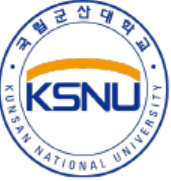Fusion of Horizons: Between Language and Literature
Mastering a foreign language is a difficult task, but studying foreign literature requires more hardship. Literature, as the core culture of the language, usually deals with how people live and think through the masterful use of the language. Matthew Arnold once expressed, the best poetry embodies the “truth and seriousness” of life. Appreciating and achieving literary works basically demand effective communication of the language and understanding the culture of those who speak the language. Thus, the people who were raised and educated in their own culture inevitably have some limitations in understanding the literature of other cultures. However hard people may study foreign literature, language and culture exist as an unconquerable barrier for a long time or even forever.
Meanwhile, I successfully entered a graduate program in English literature in America, but I was still suffering from another, almost unconquerable problem of speaking and writing standard and natural English. Living in America, of course, extended my horizons a lot toward American language and culture. The exotic experiences I had had in my early days in America soon became quite familiar to me. The more I knew the American language and culture, the more I felt that I could understand American literature. Besides the language acquisition itself, I also felt that I have developed a mature view of the different ways of life across the world; America is a multi-racial country and has diverse international students at universities. For Ezra Pound, a modernist poet, “the mastery of any art is the work of a life time.” Just like the mastery of art throughout a life time, I also regard my mastery of American literature and language as the work of my life.
Yet, the works of literary giants are different from everyday newspaper articles. Learning literature surely requires a certain advanced level of proficiency in the skills of language. A person from Asian countries feels the shortage of this proficiency, daunted by many masterpieces’ unique and complex styles. When I entered a graduate school to study English literature in Korea, I saw many friends who changed their majors into other areas; they had experienced much difficulty in understanding literary works in English and obviously felt the barrier of language and culture. Certainly the authentic appreciation of literature can be attained through a total involvement by using proficient language. Reading translated versions of original literary works is one of the easiest, yet dangerous, ways for students to have their literary experiences of foreign literature. However, graduate studies require students to obtain direct literary experiences from the original works, and many students, tired of frequent consultation with a dictionary, give up their further study of foreign literature.
The complex skills required in the graduate studies of English literature involves the simultaneous and spontaneous practice of a number of different abilities: some of them seem hard to achieve even by native students. Students from Asian countries learn English as a second language in an environment where English is not heard outside the classroom. The ingrained habits of Asian native language often cause a serious conflict or interference with learning a new language even after longtime studies. The stress and accent the English language has do not exist in most of Asian languages. Koreans and Japaneses, whose mother tongues have the same root, Ural-Altaic, are well known for their problems in pronouncing English. Perhaps this is one of the reasons why the students from Korea and Japan usually have some low scores in the Toefl exam, especially in the listening part.
I believe that foreign students’ aims of learning English and American literature lie in their awareness of the functioning of English and understanding of people beyond their own national boundaries. Another asset in learning English and American literature is a sympathetic insight into the ways of life and ways of thinking of the English-speaking people. Strictly speaking, literature in English is a product, not merely of England and the United States, but of a worldwide linguistic and intellectual commonwealth. I consider that instruction in the English language may be designed to open an avenue of communication with all English-speaking peoples, from Australia to Canada to Caribbean. If my aim of studying the English language is full and effective communication in English, my ultimate aim of researching English and American literature is the understanding of all the cultures of those speaking English as primary language. Considering the fact that language is not an end in itself but an effective skill for various uses, it is no wonder Asians learning English and American literature are focused on understanding the culture rather than the language itself. In this regard, Gadamer’s emphasis on the “fusion of horizons” is not only fusion of past and present. For scholars who work on English and American literature, the fusion of horizons is the fusion of language and literature
이메일로 받아보세요
지금 뉴스레터를 구독하세요.











